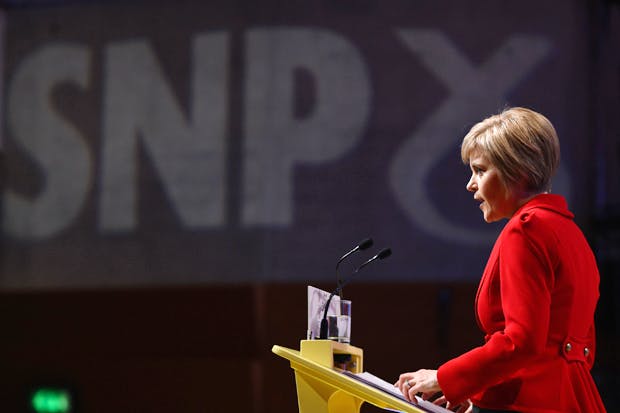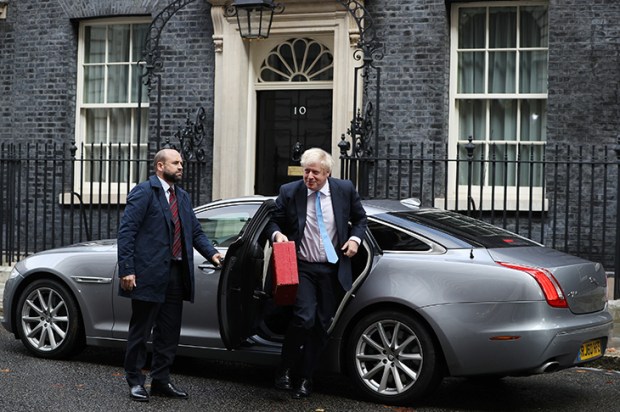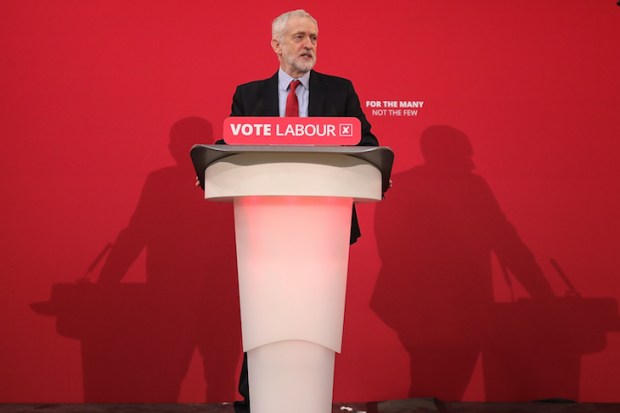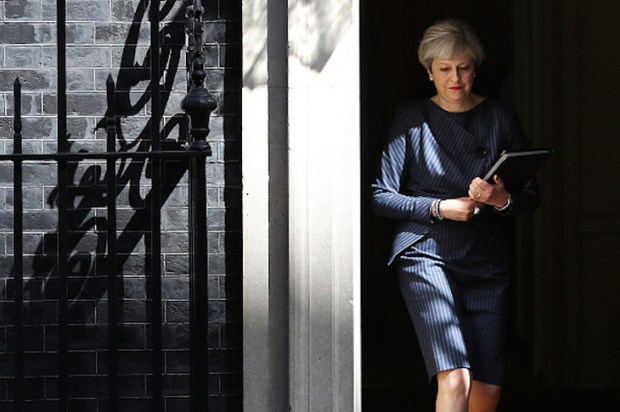Listen
http://traffic.libsyn.com/spectator/TheViewFrom22_5_Feb_2015_v4.mp3
Just four months ago Scotland was the scene of great cross-party co-operation — unprecedented in peace-time politics. Gordon Brown was offering advice on David Cameron’s speeches, Douglas Alexander and the Scottish Tory leader Ruth Davidson turned themselves into a formidable debating duo, and Charles Kennedy was being hailed by Labour strategists as the man who would save the Union.
Even George Galloway got in on the act. One of the oddest sights I have witnessed in politics was the Respect MP gushingly introducing the Liberal Democrat Chief Secretary to the Treasury, Danny Alexander, at a pro-UK rally. It all marked a recognition that Great Britain is far bigger, and far more important, than party politics.
Now, however, the Union finds itself a football in a general election campaign. The consensus that defined the referendum battle has been replaced with increasingly ugly bickering between the unionist parties, with Labour and the Tories taking it in turn to accuse each other of endangering the Union.
It now seems as if the British general election result will be decided in Scotland. The Scottish contingent at Westminster looks set to be dominated by the Scottish National Party, which is enjoying a phenomenal post-referendum surge in popularity. Polls indicate it will win 55 out of the 59 Scottish seats; the bookmakers are expecting a result closer to 35 seats.
Either way, the SNP may be in a position to put Labour in power by agreeing to some form of confidence-and-supply arrangement. Should Nicola Sturgeon, the party’s new leader, and Alex Salmond, who plans to return to Westminster, refuse to cut a deal with Ed Miliband, they would be putting David Cameron back in No. 10 — something that they have said repeatedly that they won’t do.
The Tories are trying to use this scenario to rally English voters: back us or Salmond will get his hands on your money. Meanwhile, Scottish Labour is fighting a desperate rearguard action to survive — its new leader, Jim Murphy, has found it necessary to use language which could have been designed to rile the English.
The rise of Ukip, meanwhile, means that the English question cannot be ignored. The Westminster parties used to maintain a consensus that the best answer to the West Lothian question is to stop asking it. But with Ukip polling in double digits, the old position is no longer tenable. Nigel Farage is busy making the case that no one is speaking for the English, in the hope that this will help him eat further into the Tory vote. That’s is why Cameron felt obliged to start talking about England on the morning of the Scottish referendum result.
This week, the Tories have said that English MPs can have a veto on legislation that only affects England. It’s hardly radical: a version of this promise has been party policy ever since New Labour introduced a Scottish assembly. But even this modest proposal has led Gordon Brown to go on the offensive, attacking David Cameron for putting ‘party before country’ and ‘risking the very survival of the UK’.
This criticism is particularly ironic coming from Brown. The survival of the UK has been thrown in question due to the consequences of the devolution package which he helped devise. And it was Brown who pledged ‘nothing less than a modern form of Scottish Home Rule’ in the final days of the referendum campaign. Even now, he can’t stop speaking about the constitution. He has become the SNP’s useful idiot — repeatedly bringing the conversation back to the subject where the Nationalists do best.
Indeed, Brown seems to be even every bit as obsessed with the constitutional issues as they are. In the run-up to becoming Prime Minister, he started to outline various plans to reform it and ever since he hasn’t been able to stop tinkering.
Only this week, he has come up with a new idea for Scottish Labour: the ‘vow plus’, which would see housing benefit devolved to Holyrood and the Scottish Parliament given the right to top up benefits. The name is a reference to ‘the vow’, the pledge from the Unionist party leaders on the front of the Daily Record in the final days of the campaign, to send more powers to Holyrood if Scotland voted ‘no’.
Those close to Jim Murphy say he that he’s fully supportive of this approach. But Brown banging on about the constitution is at odds with what Murphy told colleagues he wanted to do when he got the job. Then, he emphasised that he wanted to get the debate back onto normal political issues. He wanted to concentrate on holding the SNP to account for its record in government. This strategy was showing early signs of success. His able deputy, Kezia Dugdale, had been causing problems for Nicola Sturgeon at Holyrood.
It is almost impossible to exaggerate how dire the polls north of the border are for Labour at the moment. Lord Ashcroft’s extensive research of individual constituencies shows that things are every bit as bad as they seem. In the 14 Labour seats he polled, the SNP were ahead in 13 — and enjoying an average swing of 25 per cent. This would mean curtains for the shadow foreign secretary, Douglas Alexander and the shadow Scottish secretary, Margaret Curran.
All this helps explain why Murphy is picking fights with London — for example, his idea about how the mansion tax would be good for Scotland because it would force rich Londoners to pay for more Scottish nurses. This argument may have force, but it’s precisely the force that threatens to rip Britain apart. Five months after the independence referendum that force has never been stronger — and it will roil British politics regardless of who is in power at Westminster.
Whoever ends up in Downing Street, the pressures on the Union will increase after the election. Westminster’s new contingent of nationalists will see to that.
Got something to add? Join the discussion and comment below.
Get 10 issues for just $10
Subscribe to The Spectator Australia today for the next 10 magazine issues, plus full online access, for just $10.















Comments
Don't miss out
Join the conversation with other Spectator Australia readers. Subscribe to leave a comment.
SUBSCRIBEAlready a subscriber? Log in